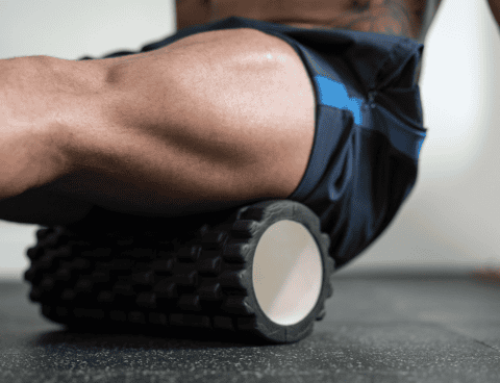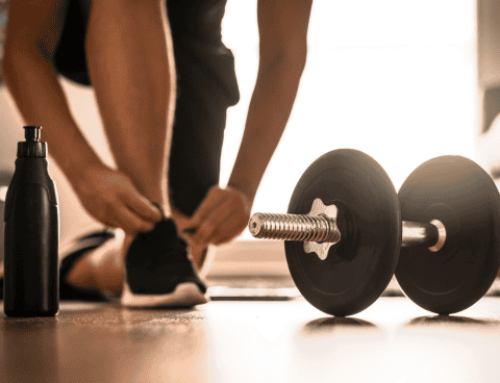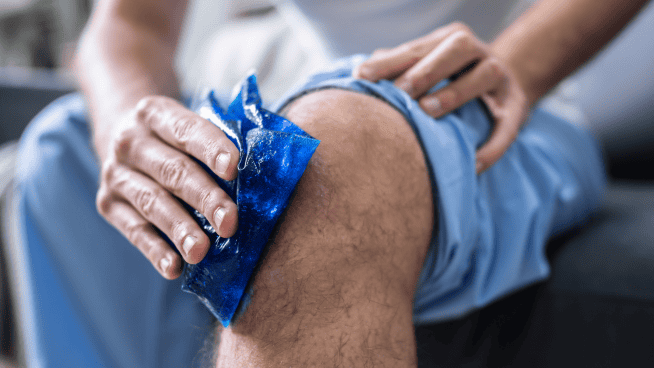5 Tips to Increase Lean Body Mass

Thinkstock
Having a hard time increasing lean body mass? There are several tricks you can use to speed the process. I spoke about this topic with exercise scientist and author Dr. Robert Portman. Here are his tips:
1. Timing is everything.
Your body builds lean body mass through protein, but it does so at different rates throughout the day. We are hardwired metabolically to expend most energy during daylight hours. Consuming a high-protein meal in the early evening results in a greater stimulation of protein synthesis and diminishes your appetite so you don’t consume wasted calories through snacking prior to sleep.
2. Recovery is the most important part of your workout.
Although exercise increases lean body mass, it also increases stress hormone release, which speeds the breakdown of muscle protein. The best way to minimize protein breakdown is to consume a recovery drink during the recovery window—the 45 minutes after exercise when enzyme systems responsible for rebuilding protein are activated. The most effective recovery drinks have a carbohydrate-to-protein ratio of four to one.
3. Drink a protein shake before bed.
Nighttime sleep is the body’s longest period of fasting. To maintain metabolic function during the six to eight hours of sleep each night, your body releases cortisol, a hormone that helps break down muscle protein for use as energy. That’s why cortisol levels are highest when you wake up. One way to minimize cortisol increase is to consume a protein shake before bed. An added benefit: protein helps you sleep better.
4. Consume protein during your workout.
Although your body uses carbohydrates as its primary energy source, it can derive up to 20 percent of its energy from protein breakdown during extended exercise (40 minutes or more). When you consume a sports drink that combines carbohydrates with protein, your muscles use the protein in the sports drink rather than cannibalizing your body’s muscle protein.
5. Lose fat, not muscle, when you diet
Although dieting can help you eliminate unwanted fat—thereby increasing your percentage of lean mass—extreme diets actually increase muscle protein breakdown. If you decrease daily intake by 300 to 400 calories, you’ll lose weight gradually and only about nine percent of the loss will be from lean body mass. However, if you reduce your caloric intake by 800 to 1,000 calories, you’ll lose up to 45 percent of your weight in lean body mass. In other words, extreme diets result in almost five times the loss of lean body mass than more moderate diets.
About Dr. Portman
Dr. Robert Portman is an exercise scientist and the author of three books: Nutrient Timing, The Performance Zone and Hardwired for Fitness. He is a frequent contributor to Triathlete, Inside Triathlon, Men’s Fitness, Velo News, Rock and Ice and Triathlete Europe. Dr. Portman has been at the cutting edge of post-exercise recovery research—he coined the term “recovery window”—and the impact of the body’s natural metabolic rhythms on fitness and health.
Read more:
[cf]skyword_tracking_tag[/cf]RECOMMENDED FOR YOU
MOST POPULAR
5 Tips to Increase Lean Body Mass

Thinkstock
Having a hard time increasing lean body mass? There are several tricks you can use to speed the process. I spoke about this topic with exercise scientist and author Dr. Robert Portman. Here are his tips:
1. Timing is everything.
Your body builds lean body mass through protein, but it does so at different rates throughout the day. We are hardwired metabolically to expend most energy during daylight hours. Consuming a high-protein meal in the early evening results in a greater stimulation of protein synthesis and diminishes your appetite so you don’t consume wasted calories through snacking prior to sleep.
2. Recovery is the most important part of your workout.
Although exercise increases lean body mass, it also increases stress hormone release, which speeds the breakdown of muscle protein. The best way to minimize protein breakdown is to consume a recovery drink during the recovery window—the 45 minutes after exercise when enzyme systems responsible for rebuilding protein are activated. The most effective recovery drinks have a carbohydrate-to-protein ratio of four to one.
3. Drink a protein shake before bed.
Nighttime sleep is the body’s longest period of fasting. To maintain metabolic function during the six to eight hours of sleep each night, your body releases cortisol, a hormone that helps break down muscle protein for use as energy. That’s why cortisol levels are highest when you wake up. One way to minimize cortisol increase is to consume a protein shake before bed. An added benefit: protein helps you sleep better.
4. Consume protein during your workout.
Although your body uses carbohydrates as its primary energy source, it can derive up to 20 percent of its energy from protein breakdown during extended exercise (40 minutes or more). When you consume a sports drink that combines carbohydrates with protein, your muscles use the protein in the sports drink rather than cannibalizing your body’s muscle protein.
5. Lose fat, not muscle, when you diet
Although dieting can help you eliminate unwanted fat—thereby increasing your percentage of lean mass—extreme diets actually increase muscle protein breakdown. If you decrease daily intake by 300 to 400 calories, you’ll lose weight gradually and only about nine percent of the loss will be from lean body mass. However, if you reduce your caloric intake by 800 to 1,000 calories, you’ll lose up to 45 percent of your weight in lean body mass. In other words, extreme diets result in almost five times the loss of lean body mass than more moderate diets.
About Dr. Portman
Dr. Robert Portman is an exercise scientist and the author of three books: Nutrient Timing, The Performance Zone and Hardwired for Fitness. He is a frequent contributor to Triathlete, Inside Triathlon, Men’s Fitness, Velo News, Rock and Ice and Triathlete Europe. Dr. Portman has been at the cutting edge of post-exercise recovery research—he coined the term “recovery window”—and the impact of the body’s natural metabolic rhythms on fitness and health.
Read more:
[cf]skyword_tracking_tag[/cf]










